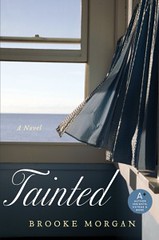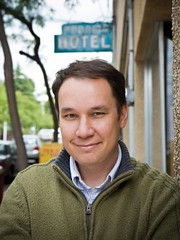Good morning, everyone! I’ve had my site on Wikio for less than a year, and they kindly informed me that my site has steadily moved up the ranks! I cannot believe it, and it is all thanks to you my lovely readers!
Wikio was kind enough to even let me have an exclusive and release their February Top 20 list of Literature Websites a few days early. Please check it out! For more information about Wikio, go here.
Also, if you enter your information in the Google form below, you can win a book of your choice from the following:
1. Cleopatra’s Daughter by Michelle Moran
2. Loving Mr. Darcy by Sharon Lathan
3. Little Bird of Heaven by Joyce Carol Oates
4. The Reluctant Widow by Georgette Heyer
5. Little Stories by Jeff Roberts
6. Gold Dust on his Shirt by Irene Howard
Deadline is Feb. 19, 2010, at 11:59PM EST














